5. Eye In The Sky (Gavin Hood)
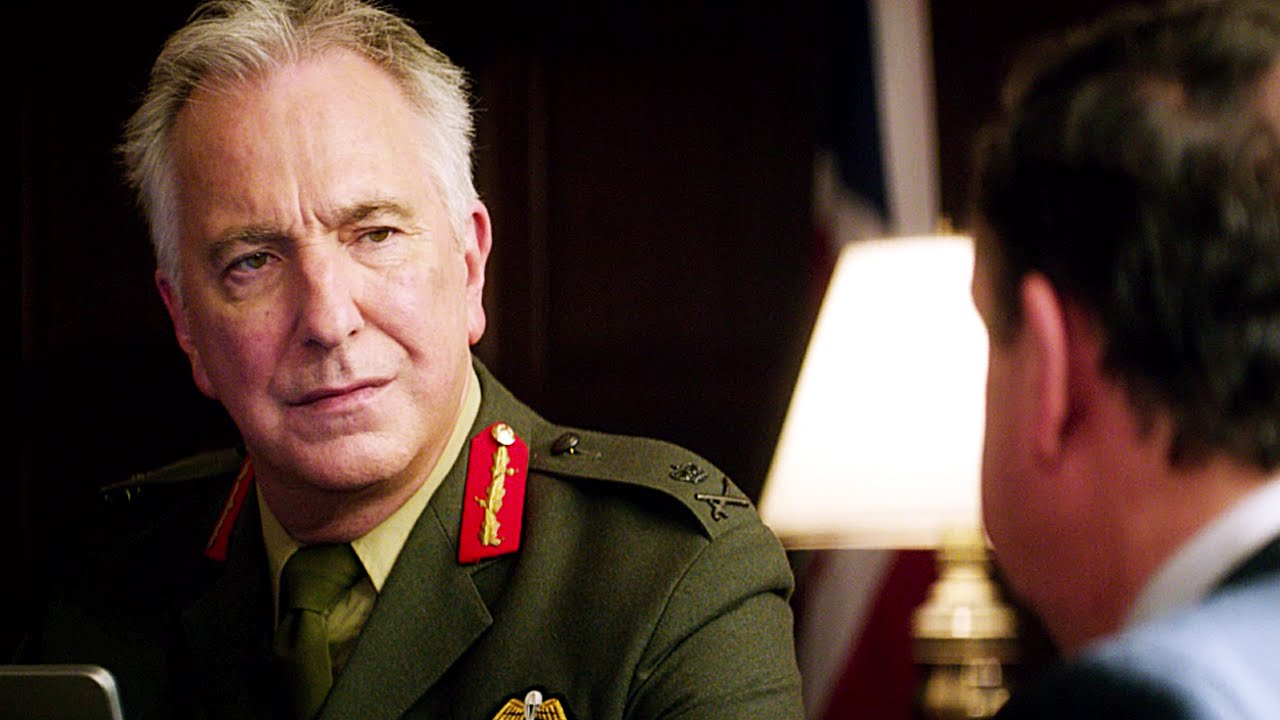
This British thriller is all about making complicated decisions and presents the strange situation of ending people’s lives in order to preclude terrorist attacks, and weighting their deaths as collateral damage while sitting thousands of miles away at a military base.
The movie raises a number of relevant questions regarding this theme. Is it litigable to condone the deaths of innocent citizens in order to avoid a suicide attack? Is the strike that follows protocols the right way of handling acute situations of danger, or is a situation-specific calculation a more human approach?
And most importantly, what is the value of a human life? It calls into question the power of single people regarding the decision of life and death, and unmasks these important determinations as an annoying part of those people’s daily working routine, while playing ping-pong during public-orientated state visits.
The movie brilliantly captures the gravity of such life-changing decisions, and the guarantors’ handling of this by appointing the decisions to another bureaucratic instance and pleading on theoretical procedures.
All of these current questions receive a tension-filled cinematic treatment. Most notably, the scenes in the soldier’s basements with the militarists working on the right strategies seem like an adaption of “House of Cards” in a military context. However, the visual heart of this movie lies in the drone shots with the audience following the terrorists, resulting in highly involved sequences.
The whole cast does an excellent job, but seeing Alan Rickman in his last role on screen before his sudden death due to cancer is a reminder of the giant artistic loss the world has to cope with. With all participants doing a first-rate job, “Eye in the Sky“ quite plainly shows the audience one of the toughest scenarios imaginable.
It’s far more than just an exceptional thriller, but also a relevant portrait of how to handle human lives on the line in times of terrorist forces on the rise. After watching, the movie definitely continues to have an effect on the viewer, while imagining the deep scars on some of the participant’s souls created by their decisions and the personal impact on the victims’ relatives.
4. Elle (Paul Verhoeven)
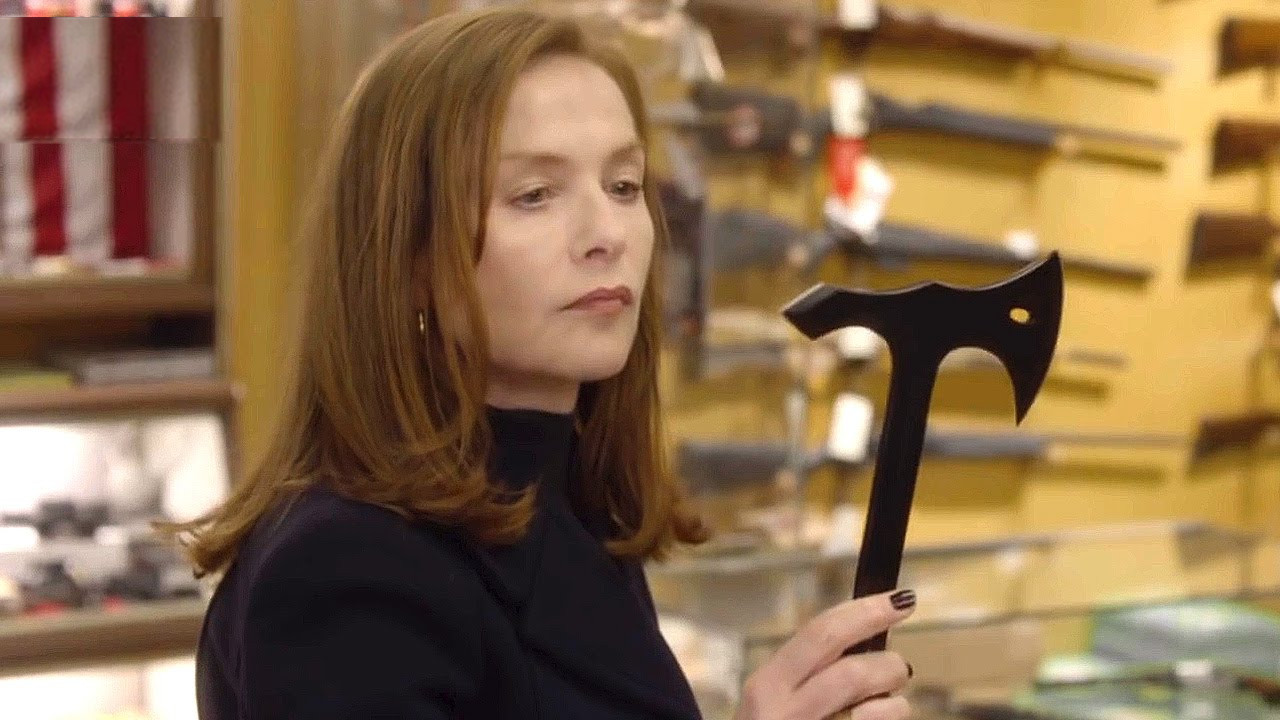
This French thriller, directed by Dutchman Paul Verhoeven, earned great appreciation by critics and audiences alike. It’s a shocking portrait of a woman who was raped inside her apartment by an apparent stranger. But instead of calling the police, she grows increasingly suspicious of the men in her life, only to discover the rapist’s true identity inside her nearest environment. Subsequently, a violent and erotic interplay between her and her torturer evolves, triggering her familiar past and her psychosexual abysses.
What differs “Elle” from other dramatic rape thrillers is the narrative build-up. Instead of revealing the rapist’s identity at the end, it gets an instinctive and unexpected reveal at the movie’s midpoint. However, instead of killing the built-up suspense and the audience’s interest, the discovery enhances the suspense by leading into a violence-dominated affair and an unleashing of dark sexual fantasies.
The movie, with its precise stresses, dually shows the twisted and perverted sexual desires of perpetrator and victim alike and works as an interesting psychogram of the protagonist.
And that’s one key to a well-working movie. It’s always about the depth of the main character and “Elle“ definitely offers a protagonist with a fascinating and profound psyche. Hated by her colleagues at work and dishonest vis-à-vis her friends, her love life is dominated by intrigues and facile sex. Her relationships with her mother and especially her father are deeply scarred by his mass murder in her youth, which gained him a lifelong imprisonment.
However, the best character is worthless without an actor or actress who transfers the actions and emotions on screen, and in “Elle”, Isabelle Hubert did a brilliant job, truly deserving her Oscar nomination.
3. Hell or High Water (David Mackenzie)
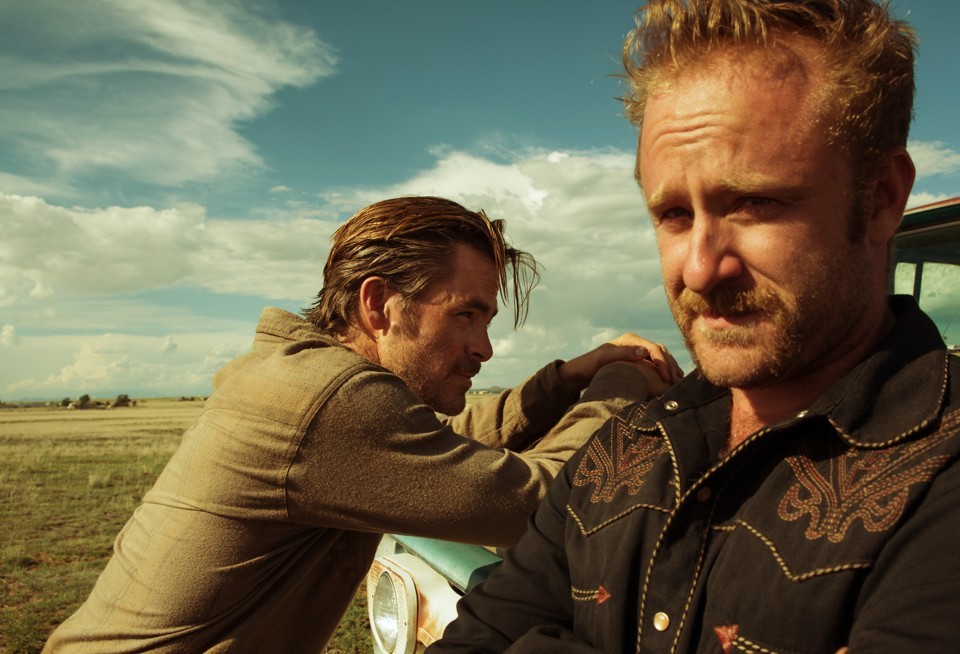
The epoch of the western is long gone, but in the last decade, neo-westerns have found their way into the realm of Hollywood with directors like Quentin Tarantino and the Coen brothers at the helm. Just as their successful movies “Django Unchained” and “No Country for Old Men”, David Mackenzie’s “Hell or High Water“ received several Oscar nominations including Best Picture, and climbs up the list of the best modern westerns with big steps.
Set under the ruthlessly burning Texas sun, two brothers start an unscrupulous raid in order to prevent their property from being attacked by their bank. Chased by a nearly retired ranger, excellently played by Jeff Bridges, the story evolves into a relentless pursuit that ends in a suspense-packed exchange of fire. But instead of simply being predicated on mindless shootings, the roots of this excellent thriller are the profound characters, sharp dialogue, and a well-built narrative structure.
Good movies often have these little details in order to let their narrative feel real and authentic. “Hell or High Water” offers a ton of these elements, from the flirting waitress to the passive-aggressive Comanche at the casino, and the worry-branded bank clerk being robbed at the movie’s beginning, just to name a few.
Aside from that, the score from Nick Caves and Warren Ellis truly knows how to transfer the subtly distorted horizon of the Texas fields into saturated and vibrating compositions, perfectly fitting the tone of the movie. With all of these ingredients, the audience gets kidnapped for 102 minutes into the state of Texas with its distinctive landscapes and willful people.
2. The Handmaiden (Park Chan-wook)
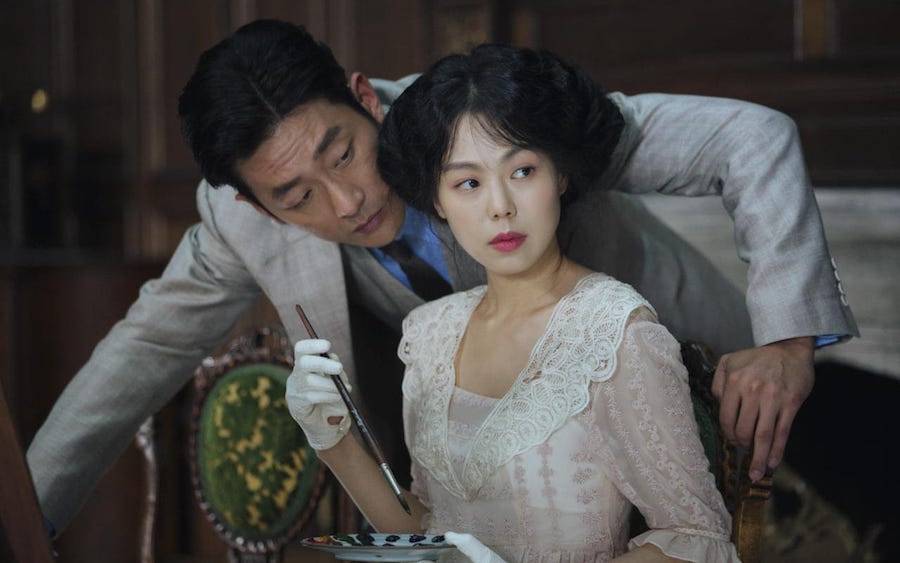
South Korea has confirmed its status as a nation with an innovative and genre-pushing film industry in the last couple of decades, with cult hits like “I Saw The Devil” and “Memories of Murder“. Park Chan-wook, one of South Korea’s most acclaimed directors and creator of the classics “Oldboy” and “Sympathy For Lady Vengeance”, returned to his roots with his highly anticipated movie “The Handmaiden” after making his Hollywood debut with his vampire thriller “Stoker“ in 2013.
Engaged as a handmaiden for a golden caged woman, a pickpocket tries to convince her to marry a conman in order to seize her heir. But while getting to know each other, the two women start to fall in love and an erotic game begins to evolve. Set in a world full of sexual perversions, the movie develops a nontransparent and thrilling narrative with a handful of surprising plot twists.
The most controversial aspects of Park’s film are the very explicit sex scenes between the two women and the curiosity of their sexual expression. But instead of seeming placative and attention-orientated, the scenes depict captivating intimacy and perfectly capture the feelings of overwhelming first-time emotions. These scenes create an understanding for the protagonists feelings and assign them directly to the audience.
Talking about the quality of “The Handmaiden” is impossible without mentioning the brilliant score of Park’s longtime collaborator Jo Yeong-wook.
The orchestral compositions are difficult to excel in regarding their musical beauty and the perfect mixing with the movie’s visual layer, and this is especially an enormous strength of Park and his team. They know how to mix all the cinematic elements into one grandiose balanced movie, which makes “The Handmaiden“ a true masterpiece and a perfect example for an unpredictable erotic thriller.
1. Nocturnal Animals (Tom Ford)
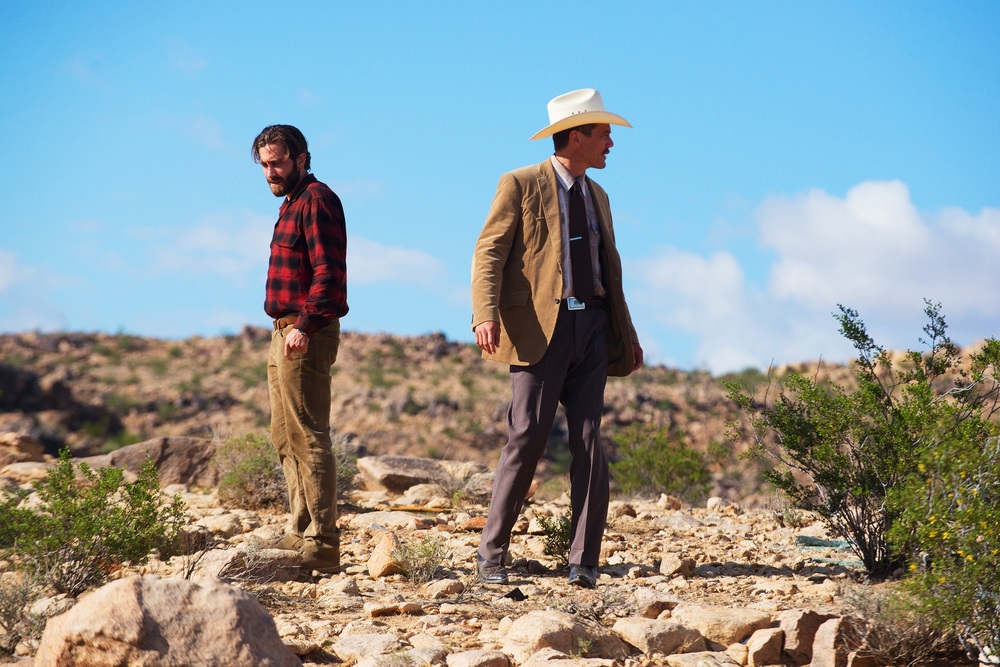
Tom Ford, primarily known for his work in high fashion, successfully entered the film industry with his 2009 drama “A Single Man“. After that he took a seven year break from directing in order to work on his approach toward the 1993 novel “Tony & Susan” by Austin Wright. It was definitely worth the wait.
Gallery owner Susan, tired of her cold high-gloss environment, lives in a distressed marriage with her husband, who cheats on her. One day she receives an ominous manuscript by her former husband; the protagonist of the book has to face the kidnapping and murder of his wife and daughter, and teams up with a cancer-stricken detective in order to demand justice. As she reads it, the manuscript begins to transform into a reflection of Susan’s past with some nerve-stretching metaphors.
The movie reveals strong Lynchean-influences from the endless highway in a desert at night as a motif, to the profound psychological meanings of the narrative layer. What’s so great about the movie, aside from its story, is the detailed composition and the decent conjunctions of the two storylines (just watch the red couch, for example). The production design is inspiring and proves Ford’s capability in creating an appropriate and involving aesthetic.
There are plenty of great scenes in this top-notch movie, but the one that deserves a separate mention is the intense kidnapping scene on the night highway, and the terrifying game of predominance by some nobodies. With its perfectly slow-paced build-up, the fascinating climax, and the awesome soundtrack of Abel Korzeniowski, this scene is one of the best cinematic approaches being screened in 2016.
Author Bio: Berlin-based Luc Hinrichsen has a bachelor’s degree in audio engineering and plenty of experience in scoring movies on his own. Beside that, he is an aspiring screenwriter and director always curious about enlarging his knowledge about film and its history.